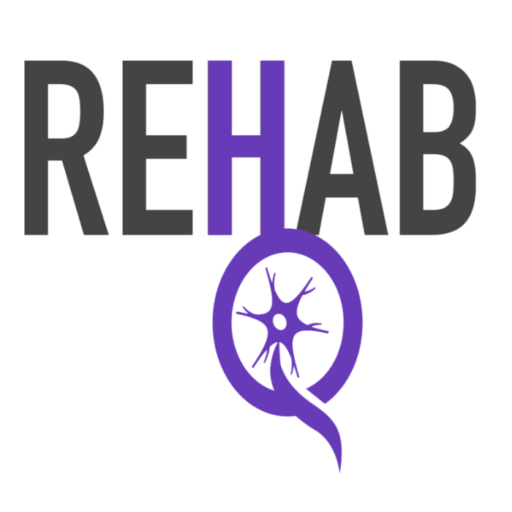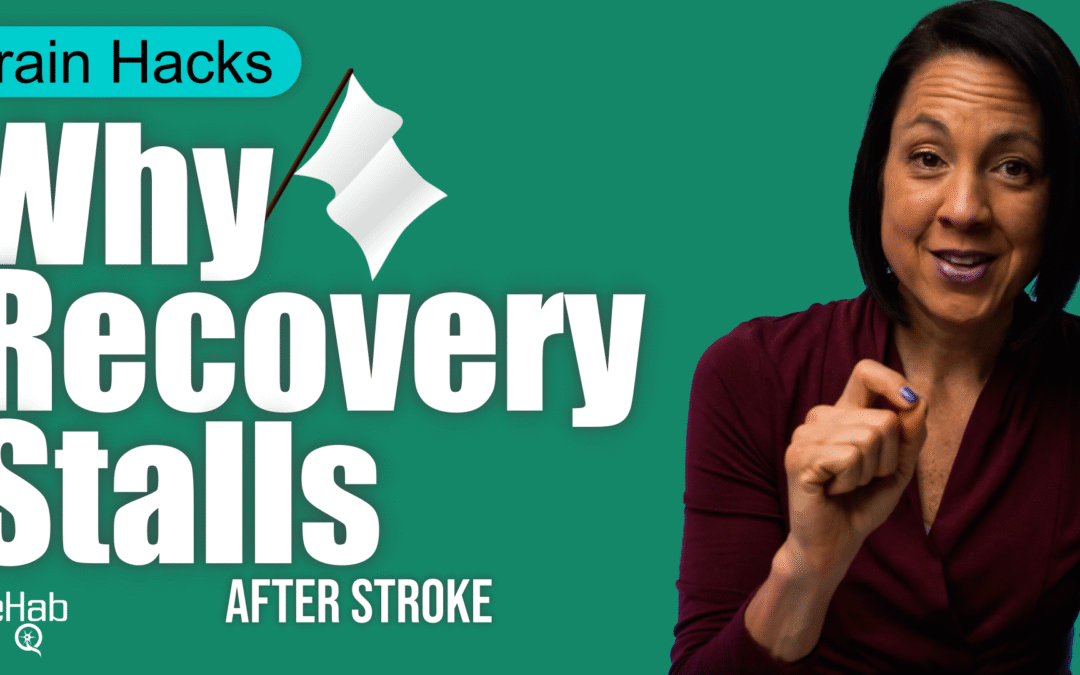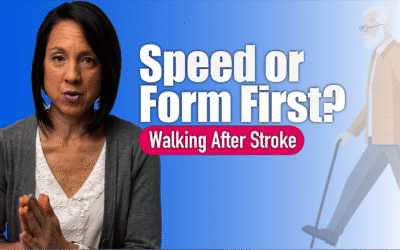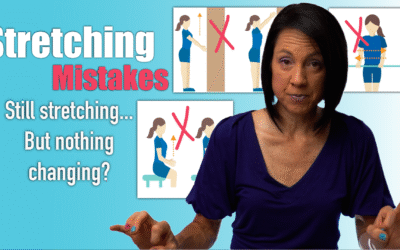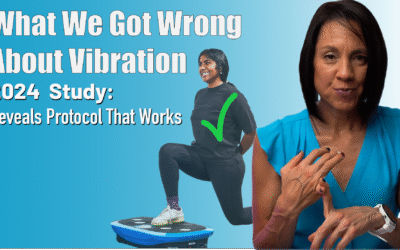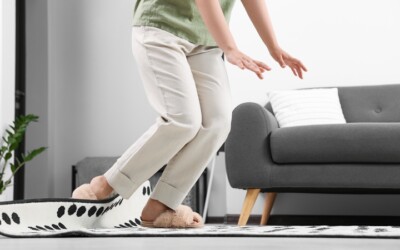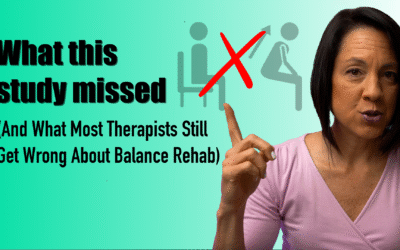Why Stroke Recovery Stalls and How to Push Through
Recovery may feel stuck, but progress is still possible. Here’s how to keep improving after a plateau.
Recovering from a stroke or neurologic injury can feel overwhelming. Walking, driving, working, or even just picking up your grandkids. It all feels like a mountain to climb. But what if I told you the secret isn’t in chasing the big goals right away? It’s in celebrating small wins every single day.
Why Big Goals Can Feel Overwhelming
I’ve worked with patients for over 22 years, and one of the most common things I see is this: the finish line feels too far away. You look at all the exercises, all the steps between where you are now and where you want to be, and it feels like dumping out a 1,000-piece puzzle. You don’t even know where to start.
And when your brain starts telling you “there’s no way I’ll get there,” motivation goes out the window.
Why Small Wins Matter for Your Brain
Recovery after stroke isn’t like recovering from a sprained ankle. It’s not just about getting your muscles stronger. You’re not just rehabbing a body part, you’re retraining your brain.
That means you need repetition, over and over, to rewire those pathways.
If someone had handed you an algebra book in elementary school, you probably would’ve thrown in the towel. But broken into small chunks? You learned, step by step, until one day algebra made sense.
Recovery works the same way.
The Confidence Snowball
Here’s what happens when you set small goals:
- You start to see yourself differently.
- You go from being “stuck” to being someone who can overcome challenges.
- Your confidence grows.
That confidence builds momentum. Momentum keeps you motivated. And once your brain starts to believe that, progress speeds up.
Real-Life Wins
Some of my patients want long exercise lists. They feel like if they’re not doing more, more, more, they’re not working hard enough.
But in reality? The people who get the best results are the ones who stick to a short, simple program every single day.
For example: Flipping your hand over 10 times.
These things sound small. But stacked up over days and weeks, they create real change. I’ve seen it hundreds of times.
Celebrate Every Step
Some of the best signs of progress aren’t dramatic, they’re subtle. Things like:
- Being able to lift your leg into the car a little easier
- Stepping over a curb without thinking about it
These are huge wins. If you start writing them down every day, you’ll be amazed at how far you’ve come in just a few weeks or months.
And if you feel like you can’t find any win? Then celebrate the fact that you showed up and did something today. That alone is a win.
How to Make Small Wins Work for You
Keep goals tiny. Make them so small you know you can succeed daily.
Tie them to a habit. Brush your teeth? Do 3 sit-to-stands right after. Making coffee? Practice standing balance for 5 seconds.
Check in occasionally. Zoom out every month or two to see how today’s small goals fit into your bigger vision.
Final Thoughts
Recovery isn’t one giant leap. It’s thousands of small steps, stacked one on top of another.
Don’t underestimate them.
Today, ask yourself: what’s one tiny win I can create? Do that, celebrate it, and trust that these small daily victories will add up to something far bigger than you can imagine.
And if you want more support, structure, and guidance on how to make this work in your recovery, check out our Rehab HQ Membership plans here. It’s designed to give you community, tools, and step-by-step strategies so you can stay consistent and keep moving forward.
Articles you may be interested in
Is Your Neuro Rehab Helping Your Recovery, or Making Things Worse?
The Real Impact of Neuro Rehab on Recovery https://youtu.be/YDgQc4p_atE Recovering after a stroke often involves long hours of rehabilitation. Neuro rehab programs are designed to retrain the brain and body, helping survivors regain independence. Understanding...
How Short Bursts of Exercise Boost Brain Healing
HIIT for Stroke Recovery Boost brain rewiring, improve movement, and speed recovery with short bursts of exercise. https://youtu.be/4SgXN2uRX8g If you’ve been on your stroke recovery journey for a while, you’ve probably heard the word neuroplasticity. Neuroplasticity...
Stretching Spastic Muscles: 8 Mistakes to Avoid
8 Common Stretching Mistakes in Stroke Recovery Why Your Stretching Might Be Making Spasticity Worse https://youtu.be/bBsM34HROYY If you’re dealing with spasticity after a neurologic injury, stretching might not be as straightforward as it seems. In fact, doing it the...
New Study: Vibration Plates Boost Balance After Stroke
It Just Vibrates… So Why Are Stroke Survivors Getting Better? The Truth Behind the Research https://youtu.be/GZgGsMjEgJQ When vibration plates first became popular, they reminded many of us of those old 1980s machines that promised to "shake" the fat away. Naturally,...
Walking “Tips” that Sabotage Post-Stroke Progress
Recovering from Stroke? Don’t Let These 7 Walking Mistakes Set You Back Better Walking Starts by Avoiding These Mistakes https://youtu.be/_nkjHLdOeLc Recovering your walking ability after a stroke is an incredible accomplishment. You’ve put in the work. Strengthening...
The Hidden Reason Your Walking Feels Off After Stroke Rehab
The Missing Link in Stroke Rehab: Why Strength Isn’t Enough How Plyometric Exercises Can Improve Your Post-Stroke Walking https://youtu.be/0xzcgTifCiM Recovering from a stroke is a journey that takes patience, effort, and persistence. Maybe you’ve been faithfully...
Struggling with Shoulder Pain After a Stroke? Here’s What Works
Why Does My Shoulder Hurt After a Stroke?Understanding the 6 Most Common Causes and What You Can Actually Do About Them Let’s be real — if you’re recovering from a stroke and your shoulder still hurts, it can feel really defeating. Especially if you’ve been doing “all...
Still Feeling Weak After Stroke? This Might Be Why
Doing the exercises… but still not getting stronger?You’re walking. You’re moving. Maybe even getting stronger.But everything still feels hard. Like walking across a room takes full concentration. Or standing up while talking feels like solving rocket science....
Stroke Recovery: Spasticity vs. Adaptive Shortening vs. Contracture
Stroke Recovery: Spasticity vs. Adaptive Shortening vs. Contracture Muscle tightness after stroke is common and can be the greatest barrier to restoring normal arm and leg movement. But not all tightness is the same. To treat it effectively, you need to understand...
Why Eccentric Control Might Be the Missing Link in Your Stroke Recovery
Why Eccentric Control Might Be the Missing Link in Your Stroke Recovery After a stroke, movement rarely returns the way we’d like. Instead of smooth, controlled motion, you get stiffness... or those annoying synergy patterns—where every muscle seems to fire at once....
